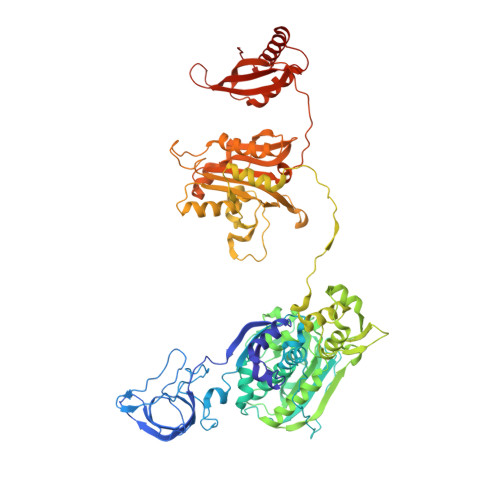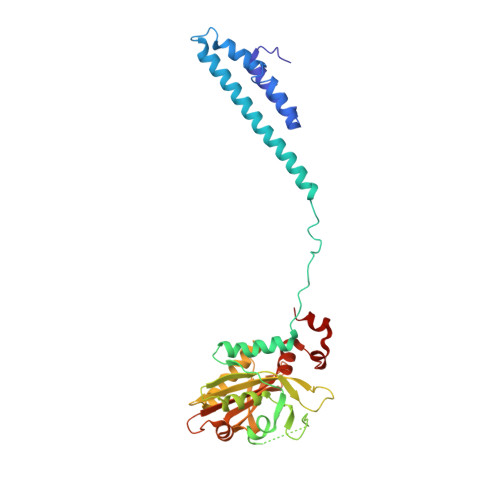Simple Secondary Amines Inhibit Growth of Gram-Negative Bacteria through Highly Selective Binding to Phenylalanyl-tRNA Synthetase.
Baidin, V., Owens, T.W., Lazarus, M.B., Kahne, D.(2021) J Am Chem Soc 143: 623-627
- PubMed: 33411531
- DOI: https://doi.org/10.1021/jacs.0c11113
- Primary Citation of Related Structures:
6OZ5, 6P24, 6P26, 6P8T - PubMed Abstract:
Antibiotics to treat drug-resistant Gram-negative infections are urgently needed but challenging to discover. Using a cell-based screen, we identified a simple secondary amine that inhibited the growth of wild-type Escherichia coli and Acinetobacter baumannii but not the growth of the Gram-positive organism Bacillus subtilis . Resistance mutations in E. coli and A. baumannii mapped exclusively to the aminoacyl-tRNA synthetase PheRS. We confirmed biochemically that the compound inhibited PheRS from these organisms and showed that it did not inhibit PheRS from B. subtilis or humans. To understand the basis for the compound's high selectivity for only some PheRS enzymes, we solved crystal structures of E. coli and A. baumannii PheRS complexed with the inhibitor. The structures showed that the compound's benzyl group mimics the benzyl of phenylalanine. The other amine substituent, a 2-(cyclohexen-1-yl)ethyl group, induces a hydrophobic pocket in which it binds. Through bioinformatic analysis and mutagenesis, we show that the ability to induce a complementary hydrophobic pocket that can accommodate the second substituent explains the high selectivity of this remarkably simple molecular scaffold for Gram-negative PheRS. Because this secondary amine scaffold is active against wild-type Gram-negative pathogens but is not cytotoxic to mammalian cells, we suggest that it may be possible to develop it for use in combination antibiotic therapy to treat Gram-negative infections.
- Department of Chemistry and Chemical Biology, Harvard University, Cambridge, Massachusetts 02138, United States.
Organizational Affiliation:



















